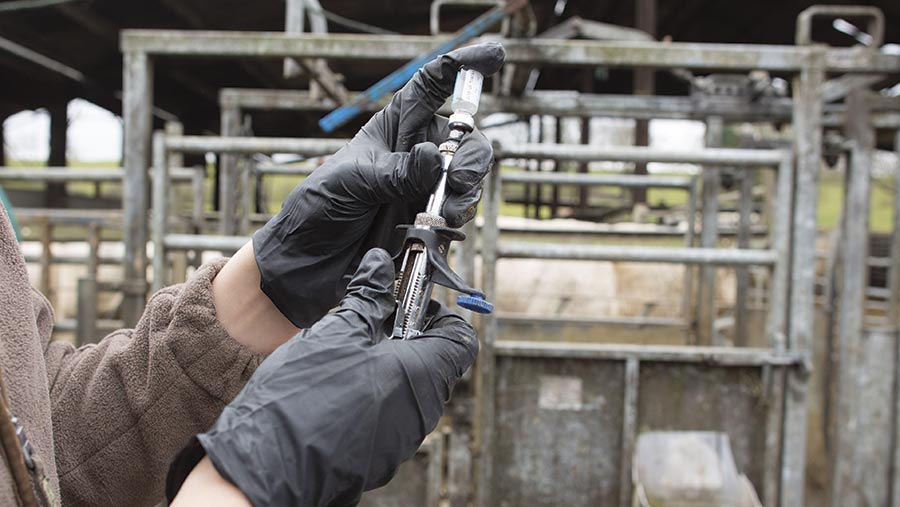Defra promises fewer bovine TB tests under new plans
 © Tim Scrivener
© Tim Scrivener A simpler system of testing for bovine TB, changes to compensation rates for farmers and the increased use of private vets have been included in a new consultation on bovine TB control in England.
Announcing the consultation this week, Defra farming minister George Eustice also confirmed the government is to relaunch the Badger Edge Vaccination Scheme (BEVS) under which it funds and co-ordinates vaccination programmes in the so-called “edge areas”.
See also: Wildlife groups resume badger vaccination in edge areas
The consultation recognises “the TB testing landscape is now very complex, with individual officially bovine TB-free herds potentially subject to multiple types of ad hoc, unpredictable TB tests between their annual surveillance tests”.
These include tests of herds contiguous to TB breakdowns, those with suspected cases of TB reported at routine slaughter, and individual cattle traced from infected herds.
The aim is to rationalise the regime in the high-risk areas, built around a default policy of six-monthly routine testing.
“Lower risk herds, where owners can demonstrate good biosecurity, will be subject to less frequent testing,” said Mr Eustice in a written statement to parliament.
Six-monthly testing would enable infected cattle to be identified at an earlier stage, and could also serve as a Defra-funded premovement test.
Defra estimates such a new regime would mean 80% of herds in the high-risk areas would face fewer tests.
Reduced compensation
On compensation, the aim is to “improve incentives for farmers to reduce disease risks on their farms”.
This effectively means lower compensation, with Defra planning to halve payments for any cattle brought into TB-restricted herds which subsequently go down with the disease.
Unclean cattle presented for slaughter will also be penalised under the proposals, while a cap of £5,000 will apply to any payment.
Vaccination
It terms of vaccination, Mr Eustice says he is now confident supplies of BCG vaccine are sufficient to allow a resumption of the BEVS.
“This will help protect healthy badgers and stop disease spreading to new parts of the country.”
Some wildlife trusts have already started vaccinating again of their own volition. They will be able to apply for grants later this year for projects to run next summer.
Meanwhile, the government has this week applied for officially TB-free status for the low-risk area of the England – more than half the country – two years ahead of schedule. This should bring trade benefits for farmers in these areas.
The consultation closes on 29 September 2017.
Industry reaction to consultation
Responding to the consultation, the British Veterinary Association (BVA) said it welcomed the plan to resume vaccination, and the fact Defra was seeking TB-free status ahead of schedule.
But it had continued reservations about badger culling as part of the control strategy, in particular, the absence of a cull timeframe and the lack of certainty about badger numbers.
“To help secure disease control benefits and prevent population extinction it is critical that as accurate as possible population estimates, using an evidence-based methodology, are obtained and made openly available in advance of a licence being granted,” it said.
“Government policy seems to have moved away from the original, evidence-based proposal of a six-week time limit for badger control within the open season.”
While badger culling remains part of the government’s bTB strategy, the BVA says it wants government to trap badgers first before shooting, rather than allowing shooting out in the open.
The NFU said it would consult widely with its members before submitting a response to the proposals.
“Using all the options available – cattle testing, cattle movement controls, vaccination where appropriate, biosecurity, and wildlife control in areas where bTB is endemic – gives us the best chance to control and eradicate this devastating disease,” said a spokesman.
